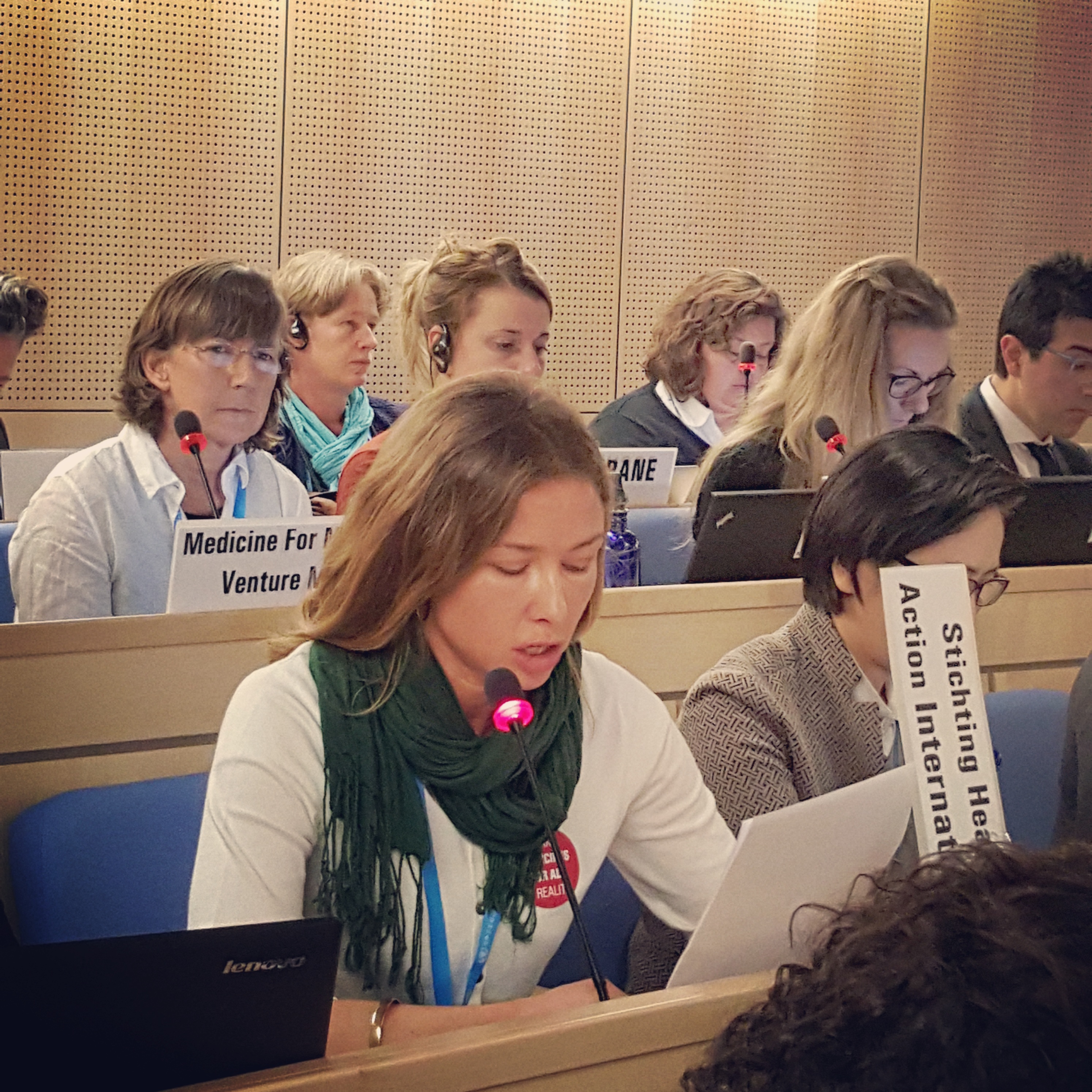On Monday, 2 May 2016, the World Health Organization (WHO) convened the 2016 open-ended member states meeting of the Consultative Expert Working Group on Research and Development: Financing and Coordination (CEWG). The 2016 CEWG is chaired by Bhanu Pratap Sharma, Secretary, Ministry of Health and Family Welfare, Government of India. The Vice-Chair is Tania Dussey- Cavassini, Vice-Director General, Ambassador for Global Health, Federal Office of Public Health, Switzerland.
During the morning session, the Chair provided an opportunity for non-governmental organizations to take the floor to prove a general statement. The following is the opening statement of Stichting Health Action International (HAI), Knowledge Ecology International (KEI) and STOPAIDS. The statement was delivered by Saoirse Fitzpatrick, Advocacy Officer (STOPAIDS).

On behalf of Stichting Health Action International, Knowledge Ecology International and STOPAIDS, we thank you, Chair for giving us the floor.We urge the WHO to exercise leadership in taking forward the work of the Consultative Expert Working Group on Research and Development (CEWG), to reconcile the objectives of stimulating medical innovation and ensuring access for all.
The CEWG identified the concept of de-linkage as the over-arching principle in which to secure this objective by de-coupling the cost of R&D from the price of health technologies including medicines, vaccines and diagnostic tools. The central recommendation of the CEWG report that Member States were asked to consider was the development of an agreement on funding R&D.
Since the last CEWG meeting in November 2012, much has happened. Ebola and Zika have made a resurgence, and governments and health systems all over the world are struggling to cope with the the high cost of drugs for cancer, hepatitis C, HIV and rare diseases, and are confronted by the challenge of growing antimicrobial resistance.
In November 2015, the UN Secretary General established the High Level Panel on Access to Medicines to remedy “the policy incoherence between the justifiable rights of inventors, international human rights law, trade rules and public health in the context of health technologies.”
Likewise, there is a need for policy coherence in the WHO discussions about R&D. What numerous health groups are calling for are concrete steps to reform the global systems that fund R&D, so that where there are health care priorities, governments collaborate to ensure there is robust and sustainable funding for R&D, and also that the costs of R&D are progressively delinked from the prices of products.
The Global Observatory can and should play a role in improving the transparency of markets for pharmaceuticals, including by providing data on research and development funding, by sources and targets, as well as shedding light on the costs associated with conducting clinical trials and other costs associated with the development of drugs, vaccines and diagnostic tests.
It is challenging but important for the WHO to reach consensus on the modalities for discussions about new agreements on funding R&D. In our view, the parties should show flexibility on many issues, including the nature of the instrument or instruments that would be considered. What is important is for governments to agree to build models for funding R&D that do not rely on high prices, and that public health needs should shape funding priorities.